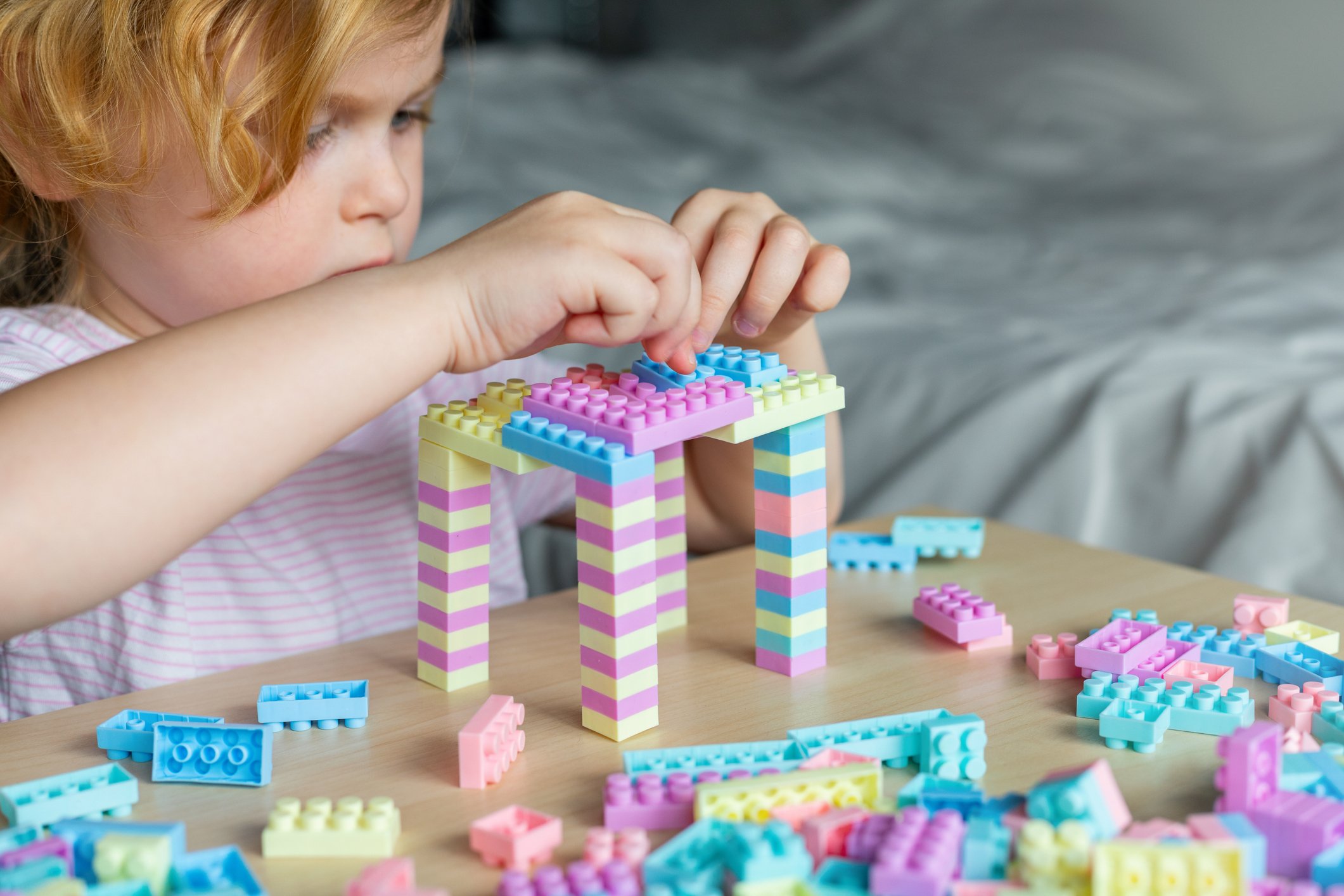Your child uses their fine motor skills in many aspects of their day. From the moment they first grasped your finger as a newborn to the day they started writing their name, these small movements have become more and more refined with practice.
Fine motor skills are essential to your child’s growth, independence, and school readiness. They support self-care, learning, and confidence in taking on new challenges.
If your child has trouble with these skills, they may start to lose confidence and avoid tasks that require them. The good news is that there are plenty of simple, engaging ways to help your child strengthen their fine motor skills right at home.
What Are Fine Motor Skills?
Fine motor skills are the small, precise hand, finger, and wrist movements your child uses to complete everyday tasks. These include:
- Holding and using a pencil or crayon
- Buttoning a shirt or fastening zippers
- Picking up small objects such as beads or coins
- Cutting with scissors
- Stacking blocks or completing puzzles
- Turning pages in a book
When Do Fine Motor Skills Develop in Children?
Every child develops fine motor skills at their own pace, but certain milestones tend to appear around specific ages:
- Infancy (0–12 months): Reaching, grasping, and holding toys
- Toddler years (1–3): Feeding themselves, stacking blocks, turning pages, and making early scribbles
- Preschool (3–5 years): Cutting with scissors, coloring with increasing control, stringing beads, and dressing with buttons or zippers
- Kindergarten and beyond (5+ years): Writing, drawing with more detail, and completing more complex clothing fasteners such as tying shoes
Why It’s Important for Your Child to Practice Fine Motor Skills
It can be tempting to step in and help your child zipper their jacket, for example. But allowing them to do it themselves has a powerful impact on strengthening these skills.
The benefits of practice include:
- Daily independence: Helps your child build confidence and pride in their abilities
- Academic success: Strengthens the foundational abilities needed for writing, drawing, and classroom participation
- Eye-hand coordination: Helps your child move with greater control and confidence during everyday tasks like cutting or using utensils
- Cognitive and social development: Encourages creativity, focus, and participation in play with peers
- Foundation for future skills: Supports more advanced activities as your child grows, from sports to music to technology use
Ways to Help Your Child’s Fine Motor Skills
You can support your child’s fine motor development at home! Everyday play and simple household activities can make a powerful difference. Here are several fun, easy ways to encourage fine motor development at home:
1. Play with materials that build hand strength
Children naturally strengthen their hands and fingers when they push, pull, and mold different textures. For example:
- Rolling, pinching, and flattening playdough or putty into shapes or letters builds finger and hand strength.
- Digging into sand with a shovel improves grip and pressure control.
- Squeezing water from a sponge into a cup or bucket strengthens the small muscles in the hands and wrists.
2. Encourage activities that develop precision and control
Small, precise movements help your child improve coordination between their eyes and hands. For example:
- Picking up cotton balls, beads, or small toys with tweezers or tongs strengthens the pincer grasp and coordination.
- Stringing beads or pasta onto yarn, pipe cleaners, or shoelaces improves finger dexterity and coordination.
- Peeling and placing stickers on paper, cups, or containers develops finger control and focus.
3. Introduce fine motor practice into creative play
Art projects naturally combine fun and focus, motivating children to practice longer. For example:
- Tracing shapes, coloring inside lines, or drawing strengthens eye-hand coordination and control.
- Painting with brushes, sponges, or cotton swabs strengthens grip and hand control.
- Cutting along lines or shapes with safety scissors strengthens hand muscles and coordination.
4. Use everyday routines for skill-building
Daily tasks are perfect opportunities to reinforce fine motor control and independence. For example:
- Letting your child dress themselves strengthens finger coordination and confidence.
- Having your child pour and scoop ingredients while helping in the kitchen builds steady, coordinated hand movements.
- Getting your child to clean up toys and put them away supports grip strength, coordination, and organization skills.
5. Add games that challenge coordination and focus
Playful games and activities keep kids engaged and help them problem-solve through movement. For example:
- Stacking blocks or connecting Legos strengthens hand strength and spatial awareness.
- Playing card or board games improves precision when picking up or moving small pieces.
- Placing pegs into holes or rolling marbles along tracks builds timing, coordination, and control.
6. Try outdoor activities for hand and body coordination
Outdoor play helps your child practice fine motor skills while also building whole-body strength and endurance. For example:
- Drawing a hopscotch board on the sidewalk develops wrist flexibility, while hopping on the board improves balance and coordination.
- Digging and planting in the garden work the small muscles in the hands, while lifting a watering can strengthen grip and arm control.
- Climbing, sliding, or hanging from playground bars builds upper-body strength and reinforces grip strength in the hands and fingers.
Remember to praise effort over perfection and keep activities lighthearted. Small moments of practice add up, and over time, your child’s confidence will grow along with their strength and coordination.
How Occupational Therapy Can Help Your Child’s Fine Motor Skills
If your child needs extra support with tasks that involve fine motor skills, pediatric occupational therapy can help. An occupational therapist will evaluate your child’s strengths and challenges, then create a personalized plan that feels fun and engaging. Therapy helps improve your child’s coordination and strength while teaching you how to support their progress between sessions.
Reach Out to More to Say Pediatric Development & Therapy
If you’d like to learn more about how occupational therapy can help strengthen your child’s fine motor skills, contact More to Say Pediatric Development & Therapy at (203) 828-6790. We have clinics that offer occupational therapy in Branford and Oxford, CT, as well as CT-based telehealth services with a caring team dedicated to helping your child grow, learn, and thrive.



